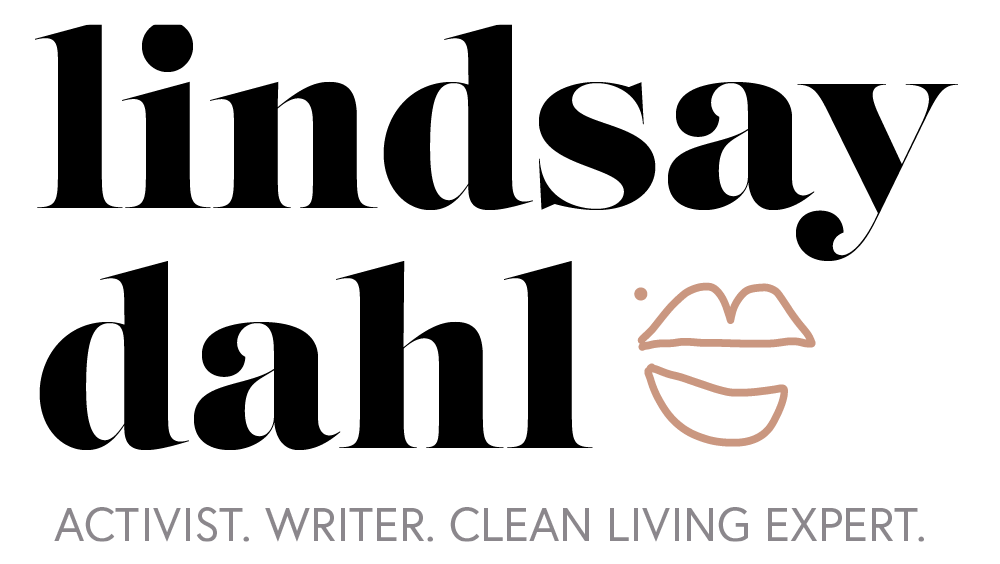Toxic chemicals are creeping into our clothes, including sportswear, “wrinkle-free” shirts and even our undergarments. It’s not always easy to avoid or control chemicals used in clothing, but one thing we can do is reduce the amount of toxic chemicals used in the soap we use to clean our clothes.
Here’s the skinny on health concerns and suggestions for avoiding toxic chemicals in your spin cycle.
Dry cleaning & toxic chemicals
Aside from being expensive, conventional dry cleaning is harmful for the environment and our health. Most conventional dry cleaners use a toxic chemical called “PERC” (for short) which has been linked to damage of the central nervous system, kidney and liver damage, chronic fatigue, headaches and other health concerns.
Another notorious chemical trichloroethelene (TCE) is used in conventional dry cleaning as a spot treatment and has been linked kidney toxicity, cancer, neurotoxicity and other bad health effects. This summer an EPA risk assessment found that said that TCE was too toxic to be used in laundry and hobby applications, and yet the agency can’t ban the chemical due to our failed and weak laws on toxic chemicals. How’s that for a catch-22?
Many dry cleaners that themselves labeled as “organic” don’t use PERC, but instead use “VOC’s” or volatile organic compounds, also known to cause harm. Be leery of such signs and ask the cleaners what kind of process they define as “organic.” There is no regulation or standards for putting a “green”, “eco” or “organic” sign in the window of one’s store.
- Avoid buying “dry clean only” clothing when possible to make things easy and save a few bucks.
- Wash “dry clean only” outfits at home by hand. Find out how to do this here.
- The safest option is called “wet-cleaning”. To find the closest wet-cleaner near you go to www.nodryclean.com.
- Hard to keep it all straight? Print off this wallet card from NRDC.
Chemical laundry detergents & dryer sheets
So many of us are attached to the “scent” of clean laundry. I used to love the smell of fabric softener, inhaling deeply as I pulled the warm laundry from the dryer. The more I learned about the toxic chemicals that were associated with that scent, the less I seemed to care about that nostalgic smell.
Toxic chemicals used in conventional laundry detergent can harm the environment and get into the water supply. Fragrances in detergents and dryer sheets often contain phthalates, a class of chemicals linked to a host of nasty health effects. Dryer sheets have been found to contain up to 25 “VOCs” (volatile organic compounds) – so ditch those dryer sheets!
- Review this list of chemicals to avoid when purchasing detergent (and check out my favorite brands like Molly’s Suds and Seventh Generation).
- Go fragrance free. Many of conventional laundry detergents have strong synthetic fragrances used which can cause allergies, and unnecessary exposure to phthalates and other hormone-disrupting chemicals.
- Ditch nano-particles, which are really small particles that we know very little about (good or bad) are commonly used and are ending up in our water supply at alarming amounts.
- If you use a laundry service for your business, use detergent brands free of nonylphenol ethoxylates (NPEs) found in industrial detergents. NPEs have been linked to aquatic toxicity and water pollution.
- Skip dryer sheets, and instead go for wool dryer balls. These can easily be found on sites like Etsy.
And if you’re feeling really ambitious, you can try making your own non-toxic laundry detergent!
Homemade Laundry Detergent Recipe
• 16 cups baking soda
• 12 cups washing soda
• 8 cups grated castile soap
• 3 tablespoons lavender, lemon or grapefruit essential oil (optional)
• Combine baking soda, washing soda and soap flakes. If using, add essential oil and mix with a wire whisk. Use 1/8 cup per load.
Never miss a post and join my email list today!




Lindsay…have you every heard of laundry magnets. I completely cut out detergent in my house. I use some baking soda wash booster for stains….but other than that just water.